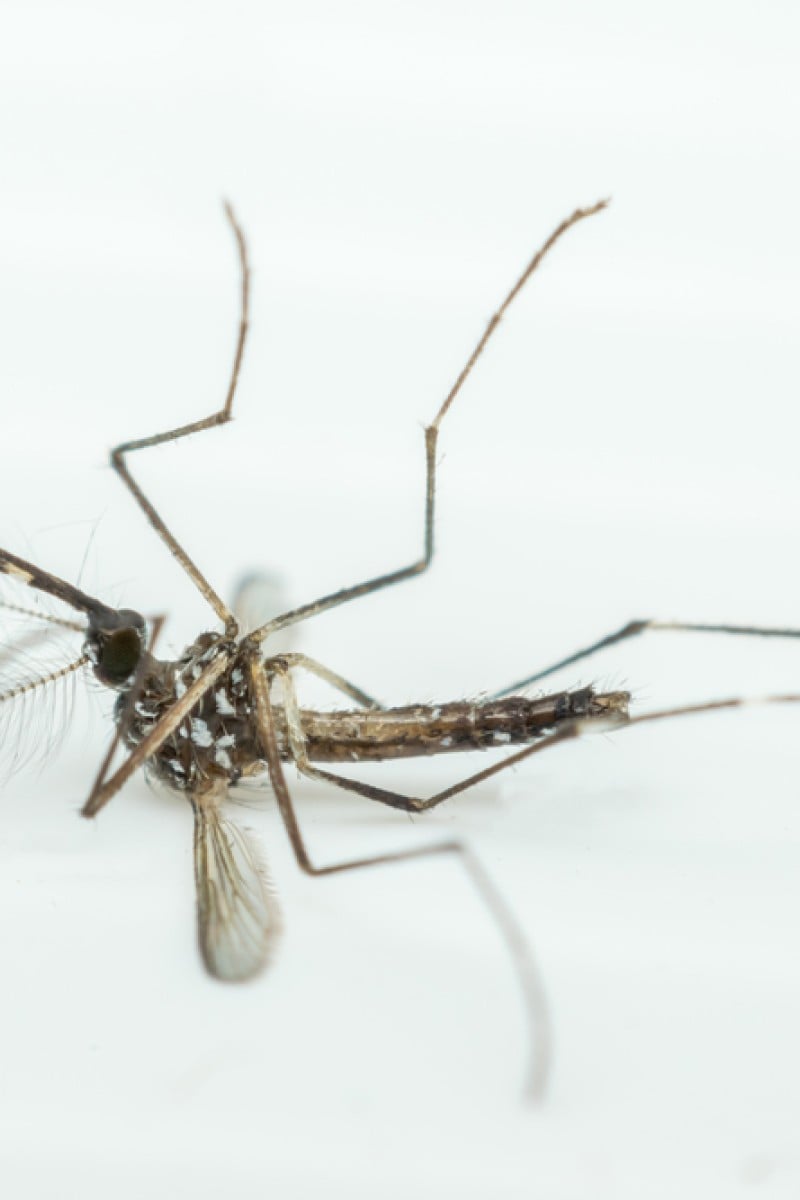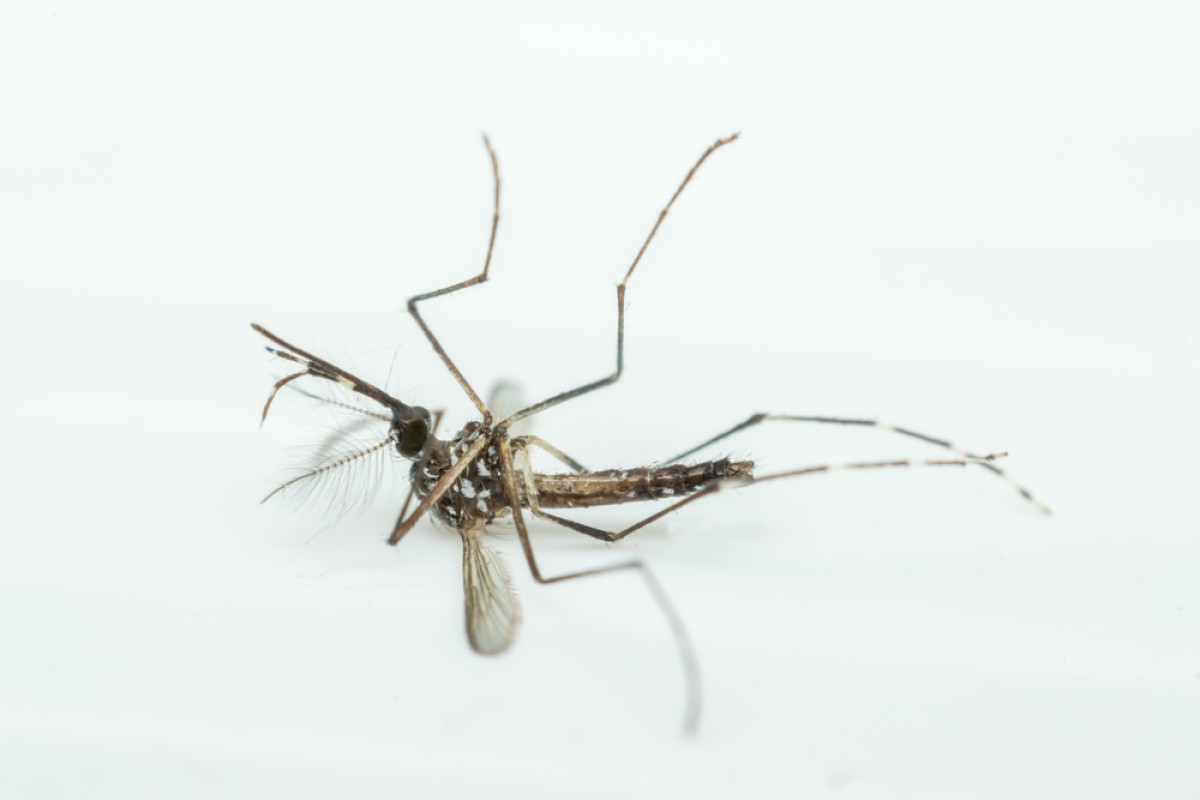
With Zika stalking Hong Kong, here are some facts you should know about mosquitoes
Who do they like to bite? Will air conditioning save us?

It's a hot, steamy summer across much of the northern hemisphere, and mosquito bites are as much a part of the season as hikes and picnics. This year, though, daily headlines remind us that a bite can bring more than an irritating itch. Mosquitoes can be very good at transmitting diseases. The outbreak of Zika virus has put pregnant women there at risk. Mosquitoes can also transmit West Nile virus, dengue fever and chikungunya, another viral illness. Separating fact from fiction can help us better protect ourselves against mosquito bites and the diseases they can spread.
Myth No. 1
Mosquitoes find everyone equally tasty
Female mosquitoes don't much care who they bite; they’re just out for blood, which they need to make eggs. This has led some people to believe that the bugs don't show any preference when it comes to their victims.
NBC News, for example, explained that mosquitoes are drawn to CO2, which all of us produce. BugOfff.com, a site about insect pests, says it’s a myth that "mosquitoes choose who to bite".
But research has shown that some mosquito species prefer certain types of people. The insects rely primarily on smell to find prey, and female mosquitoes seem to flock to certain individuals over others based on differences in the scent chemicals produced by the human body. One study in Gambia, for example, found that pregnant women were especially attractive to the Anopheles mosquitoes that can transmit malaria. Another study in Burkina Faso found that beer consumption increased subjects’ attractiveness to the same type of mosquitoes.
That doesn’t mean you can change your diet to change your smell. You won’t stop a skeeter, for example, by eating garlic or taking vitamin B supplements, studies suggest. And there aren’t clear, consistent dietary explanations for why some people seem to be mosquito magnets.
Myth No. 2
You’re safe if you spend most of your time in air conditioning
When Zika was discovered in the United States, the Centers for Disease Control and Prevention advised pregnant women to stay inside, in air conditioning. Prevention magazine says avoiding the outdoors, at least at certain times of the day, is one of the best ways to avoid exposure.
It's true that spending the bulk of your time inside, with doors and windows shut, will lower your risk. Buildings without air conditioning and window screens make mosquito-borne disease outbreaks easier.
But that doesn’t mean mosquitoes can’t be a problem inside. Some, especially the Aedes aegypti mosquito which can carry Zika and dengue, can live in nooks and crannies in homes and yards. One exterminator wrote about discovering mosquitoes breeding in boiler rooms and potted-plant containers.
On another blog, a homeowner described the mosquito population he found in his bathroom. "Right now the mosquitoes are much worse inside of our house than outside," he wrote. "Yes we have screens. Yes we keep our doors closed. But these ones come from within."
That's why, in high-risk areas, experts recommend sleeping under mosquito netting at night, particularly for infants.
Myth No. 3
You’re safe from mosquitoes if you’re not near a swamp
Most mosquito species like warm weather and moist soil or still water to lay their eggs. This makes swamps particularly appealing - as one website explains, mosquitoes "most commonly infest ponds, marshes, swamps and other wetland habitats."
Some people have even suggested draining wetlands to cut down on these pests.
In reality, that would do little to reduce mosquito populations. Many species don’t need a swamp to reproduce; some are more comfortable in human habitats.
Aedes aegypti prefers the company of humans - so much easier to find blood. Female Aedes aegypti chiefly lay their eggs in artificial containers with vertical walls and a bit of standing water. They find the perfect incubators in those flower pots, tires, buckets, planters, toys, birdbaths, empty garbage cans and lids in yards and on the street.
Once the eggs hatch, the larvae drop down into the water, where they mature into adult mosquitoes. This is why it's so important to check your house, yard and neighbourhood weekly for these kinds of containers. Empty and scrub them. Turn them over, cover them, dry them out or throw them out.
Even mosquitoes born in swamps can pose a danger to humans who don't live nearby. The species Aedes sollicitans prefers stagnant salt marshes along the ocean for its eggs and larvae. However, the insect can fly inland to find animals or people to bite.
Myth No. 4
Mosquitoes hate citronella candles, bats and Listerine
The Internet is awash in ideas for repelling mosquitoes. Websites sell wooden bat homes for back yards, promising that their omnivorous occupants will devour the pesky bugs. Emails circulate suggesting that a bowl of water with a few drops of liquid soap, a spray of Listerine or half a lemon stuffed full of cloves will keep the bloodsuckers away. Amazon even sells an "eco friendly" device that emits ultrasonic waves to fight the bugs.
Unfortunately, most of these "natural" solutions provide little, if any, relief. Take citronella candles - Harry Savage of the CDC told CNN that they don’t do much. "To me," he said, "citronella only protects the candle." Ditto with mouthwash, bats (which don’t eat enough mosquitoes to make a measurable difference) and ultrasonic waves.
Research shows that the best mosquito repellents are Environmental Protection Agency-registered sprays for use on the body, such as products that contain DEET or picaridin. (Groups like the CDC, Consumers Union and Environmental Working Group offer useful guides.)
As one expert noted, "Many, many studies throughout the world have shown that botanical based repellents provide substantially less protection against biting mosquitoes than DEET or Picaridin."
Additionally, it’s not enough to take precautions only at night. Sure, mosquitoes such as those in the Culex genus, which can spread West Nile virus, tend to attack after dusk. But others, including Aedes aegypti, bite by day.
Myth No. 5
We should wipe mosquitoes off the face of the Earth
Each year, hundreds of thousands of people are killed by mosquito-borne diseases. In the past decade, malaria claimed the lives of 6 million people; as Bill Gates explained, the illness "threatens half of the world’s population and causes billions of dollars in lost productivity annually." These staggering costs have led several experts to suggest that we make mosquitoes extinct. "It’s time to kill all the mosquitoes," Slate wrote. "It’s time for mass mosquito-cide."
In reality, though, total extinction of all mosquito species could be risky and almost impossible. First, not all mosquitoes are problematic - although there are about 3,500 varieties, only 200 or so bite us. Additionally, in many places, such as the Arctic, the bugs are a vital source of food for animals.
Mosquitoes are also tenaciously resilient, and they live in close contact with human communities. Pesticides alone are not an answer, as there can be enormous risks to human and ecological health from misuse of pesticides, and mosquitoes can often develop resistance. "There is going to be no silver bullet that is going to eradicate them all," Joseph M. Conlon, technical adviser to the American Mosquito Control Association, told Vice. "There is going to be some environmental damage and possibly in ways we couldn't even predict."
In the future, experts say, we might be able to limit certain species of mosquitoes using genetic modification to make them infertile. But even that could be a challenge - the number of modified mosquitoes you’d have to release would be phenomenal.
Kim Knowlton is the senior scientist and deputy director of the Natural Resources Defense Council’s Science Center.
mosquito-myths
